Why is the Battery Light On When the Car is Off – Here’s the Fix!
The battery light on your dashboard serves as an essential warning sign that something in your vehicle’s electrical system is amiss. It’s alarming to see the car battery light glowing even when the car is turned off.
Typically, this warning light indicates a problem with the battery or charging system. However, several other issues may also be at play, requiring prompt attention to avoid further damage.
Understanding why the battery light stays on after the engine is off can prevent breakdowns, save on costly repairs, and ensure your car runs smoothly.
Understanding the Battery Light Warning:
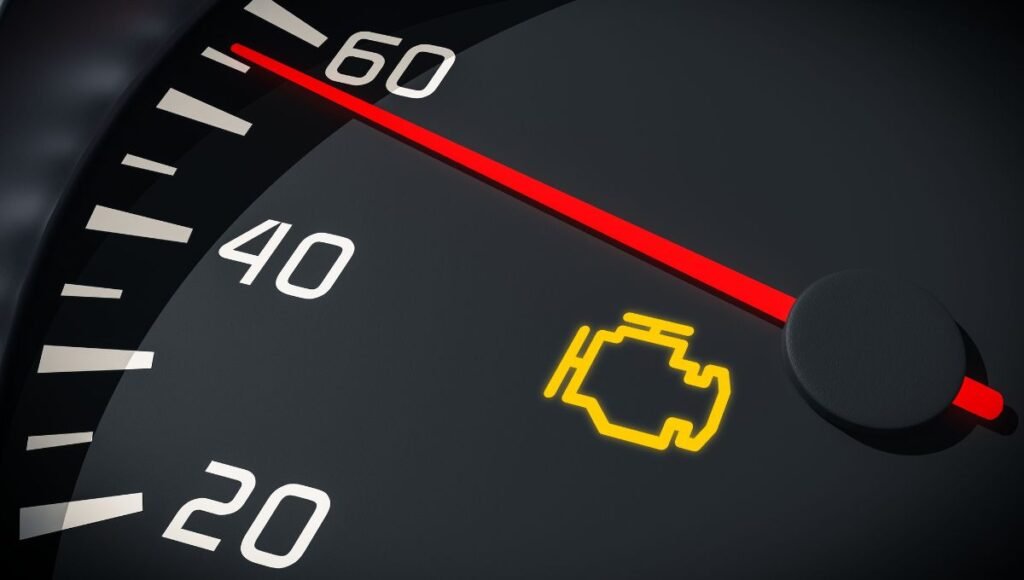
What Does the Battery Light Mean?
When the battery light illuminates on your dashboard, it means your vehicle’s electrical system isn’t functioning correctly. Usually, this light appears when there’s a disruption in the charging process. The alternator, which charges the battery while the engine is running, may not be working properly.
A faulty alternator, bad battery, or wiring issues could cause the battery light to come on. When you first start your car, the battery light goes on briefly to check the system, but it should turn off once the engine is running. If it stays on, you’ll need to investigate.
Common Scenarios When the Battery Light Comes On:
Sometimes the battery light comes on when you start the engine or during short trips, especially if your driving style involves frequent stops and starts. In these cases, the battery may not have enough time to recharge fully.
It’s also possible for the battery light to turn on due to extreme weather conditions or electrical overloads, such as using power windows and other accessories all at once.
In newer vehicles, a light flashing intermittently could indicate the alternator is not charging the battery correctly, which needs prompt action to prevent a dead battery.
read also: Can a Failing Battery Affect Your Car’s Fuel Pump – Shocking Truth!
Reasons the Battery Light Stays On After Turning Off the Car:
Possible Causes: Is it a Faulty Battery or Something Else?
A common culprit behind the battery light staying on after the engine is off is a faulty battery. Car batteries have a lifespan, and as they near the end, they struggle to hold a charge. If your battery is dead or on its last legs, the battery light would remain illuminated.
However, other factors like battery corrosion around the terminals or a parasitic drain from a short in the wiring somewhere could cause the light to stay on even when the car is turned off.
The Role of the Alternator in Keeping the Battery Light On:
The alternator in the car is responsible for charging the battery as the engine runs. If the alternator is faulty, it may not generate enough power to recharge the battery, causing the light to stay on.
In some cases, the diode inside the alternator, which controls the flow of current, may have failed. A bad diode can drain the battery’s energy even when the engine is not running. Replacing the alternator or voltage regulator, depending on the diagnosis, can resolve this issue.
Electrical Issues: Is Your Car’s Charging System Malfunctioning?
Electrical problems in the charging system can also cause the dashboard battery warning light to stay on. Loose or corroded connections, frayed wires, or a bad voltage regulator can prevent the alternator from charging the battery.
Troubleshooting the issue with a multimeter to check the voltage can help pinpoint whether the alternator is faulty or if there’s a short in the wiring.
If the battery voltage drops too low, you could face further complications, including the engine stalling or accessories failing to function.
How the Charging System Impacts the Battery Light:
How the Car Battery Light Is Tied to the Charging System:
The car battery light is a direct indicator of your vehicle’s charging system health. When functioning properly, the alternator charges the battery while the car is running.
If the alternator isn’t doing its job, or if the battery charge is too low, the light will come on, signaling that the vehicle is running solely on battery power. If the problem persists and the battery is not recharged, you may soon find yourself unable to start your car.
Drive Your Car: How Short Trips Can Affect the Charging System:
Short trips can contribute to battery light woes. When you don’t drive your car long enough for the alternator to recharge the battery, it could lead to insufficient power for future starts.
The battery light to come on could simply be your car telling you that there’s not enough energy left in the battery to keep up with demand, especially if you’re using features like the radio or air conditioning.
Regular long drives can keep the battery voltage at optimal levels, preventing unnecessary wear on the electrical system.
Components of the Charging System That Influence the Battery Light:
The battery, alternator, and voltage regulator are all crucial parts of the charging system. Each component must work in harmony to ensure proper functionality.
If any of these fail, you’ll likely see the battery light came on. Sometimes, even a loose or disconnected negative battery terminal could cause the battery light to stay on. It’s important to routinely check all car parts, including the alternator, battery, and wiring, to ensure everything is working as it should.
Troubleshooting the Battery Light: Step-by-Step Guide
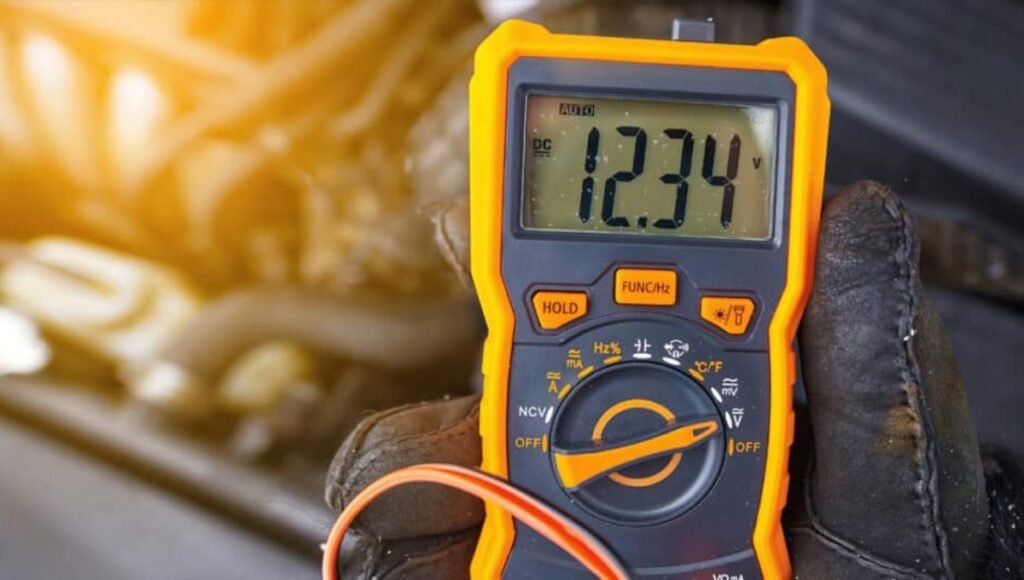
Inspecting the Battery: Signs of Wear and Tear
Begin troubleshooting by inspecting the battery. Look for visible signs of wear, such as battery corrosion around the terminals. If the battery is more than three years old, it could be time for a replacement.
Use a multimeter to check the voltage; a healthy car battery should have slightly higher voltage when the engine is off. If the battery voltage is low, you may need to recharge the battery or consider replacing it.
Checking the Alternator: What to Look for and How to Test It
Testing the alternator involves more than just seeing if the car runs fine. You’ll need to check the voltage while the engine is running to ensure the alternator is charging the battery effectively. A voltage reading that’s too low or too high could indicate an issue with the alternator or the voltage regulator.
If you’ve installed a new alternator and the problem persists, there may be a deeper electrical issue causing the battery light to stay on.
Wiring Problems: Could There Be a Loose or Corroded Connection?
A loose connection, especially around the battery terminal or alternator, can cause your battery light to stay on when my car is off.
Inspect the wires and connectors to ensure everything is tightly secured and free of corrosion. Even a small short in the wiring could cause your battery light to stay illuminated, draining battery power unnecessarily.
read also: Can Using Aftermarket Parts Cause Battery Drain – Common Mistakes!
Can You Drive Your Car Safely With the Battery Light On?
The Dangers of Ignoring the Battery Light:
Driving with the battery light on can be risky. While your car may run fine for a short period, you could experience sudden electrical failures or a complete engine shutdown.
This warning light indicates a problem that needs attention, and ignoring it can lead to larger, more expensive issues, including a completely dead battery or a failing alternator.
How Long Can You Drive Your Car Once the Battery Light Comes On?
The amount of time you can drive your car once the battery light comes on depends on how much battery power remains.
If the alternator is not charging the battery, your car will rely solely on the energy stored in the battery, which could last anywhere from a few minutes to an hour or two, depending on usage. Using high-energy accessories like headlights or air conditioning will shorten this time.
What to Do If Your Car Battery Light Stays On While Driving:
If the battery light stays on while driving, turn off any unnecessary accessories and head to a safe location or mechanic as soon as possible. Avoid using high-powered features like power windows, as these can drain your battery faster.
If possible, stop by an auto parts store like AutoZone, where they can perform a free diagnostic to check your charging system.
How to Fix Battery Light Issues: Expert Solutions
Simple Fixes You Can Try at Home:
There are a few simple steps you can take to resolve this issue at home. First, disconnect the battery and clean any corrosion around the terminals.
Sometimes, this is enough to clear up minor electrical problems. If the problem persists, use a multimeter to check the battery and alternator output. If the alternator is faulty or the battery is dead, you may need to replace them.
When to Seek Professional Help: Signs It’s Time to Visit a Mechanic
If you’ve tried simple fixes like cleaning the terminals or recharging the battery without success, it’s time to visit a professional.
A mechanic can perform a full diagnostic to determine whether the alternator or voltage regulator is faulty or if there’s a short in the wiring that needs attention. Complex electrical issues should be handled by experts to avoid further damage.
Preventative Maintenance Tips to Avoid Future Battery Light Problems:
Preventative maintenance is key to avoiding future battery light issues. Regularly check your battery and charging system, including the alternator, voltage regulator, and wiring, to ensure they’re functioning correctly. Replace car batteries every 3-5 years and avoid overloading your vehicle’s electrical system with unnecessary accessories.
Final Thoughts: Ensuring Your Car’s Electrical Health
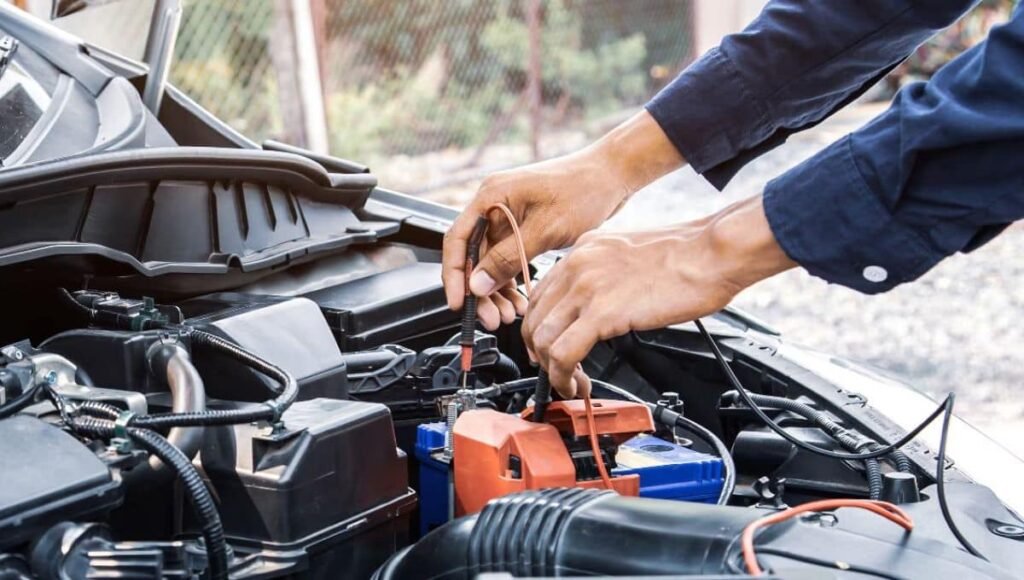
Why Addressing the Battery Light Promptly Saves You Money and Time:
Ignoring the battery light can lead to expensive repairs down the road. Promptly addressing any issues with the battery or charging system will save you time and prevent more serious problems from developing. A healthy electrical system ensures your car runs efficiently, and you avoid the frustration of a breakdown.
Key Takeaways for Maintaining a Healthy Charging System:
Maintaining your car’s electrical health requires attention to detail. Regularly inspect the battery, alternator, and wiring for signs of wear, and make sure to replace components as needed.
By staying proactive, you’ll keep your car’s charging system in optimal condition, avoiding the dreaded moment when the battery light stays on even after your car is turned off.
read also: Can Using Too Many Accessories at Once Drain Your Battery – Shocking Truth!
FAQ’s
1. Why is my car’s battery light on when the engine is off?
The battery light may stay on due to issues with the battery, alternator, or wiring, indicating the electrical system isn’t functioning properly.
2. Can I drive my car with the battery light on?
It’s risky to drive with the battery light on. Your car could lose power unexpectedly, so it’s best to get it checked as soon as possible.
3. What does the battery light mean when it comes on while driving?
It means your car’s battery isn’t being charged by the alternator, and the vehicle is running on battery power alone.
4. How can I troubleshoot my car’s battery light at home?
Start by checking the battery terminals for corrosion, testing the alternator with a multimeter, and ensuring all connections are secure.
5. How long can I drive once the battery light comes on?
You may be able to drive for a short time, but the battery will eventually run out, leading to a complete loss of power.
Conclusion:
In conclusion, addressing the battery light promptly can prevent costly repairs and avoid dangerous breakdowns. Whether it’s a faulty battery, alternator, or wiring issue, understanding the root cause and taking action ensures your car’s electrical system runs smoothly. Regular maintenance and early troubleshooting help extend the life of your battery and keep your vehicle reliable.
Read Also:
Can I Use a Car Battery for a boat – Discover the Truth!
Can a Battery Issue Cause Your Car to Overheat – Discover the Answer!
Can a Weak Car Battery Cause ECU Problems – Save Your ECU From Harm!
Can a Weak Battery Affect Transmission Shifting – Shocking Truth!
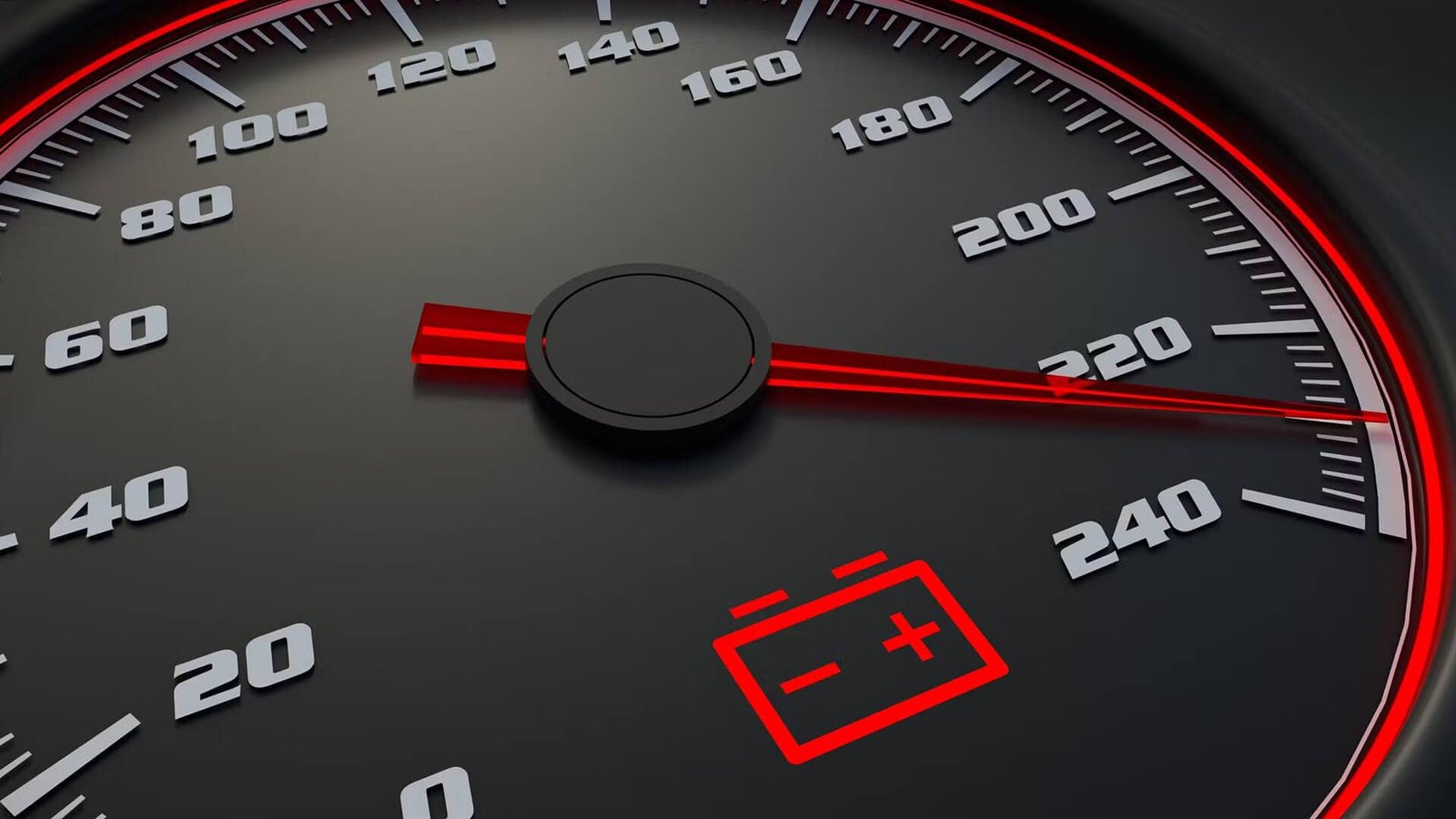

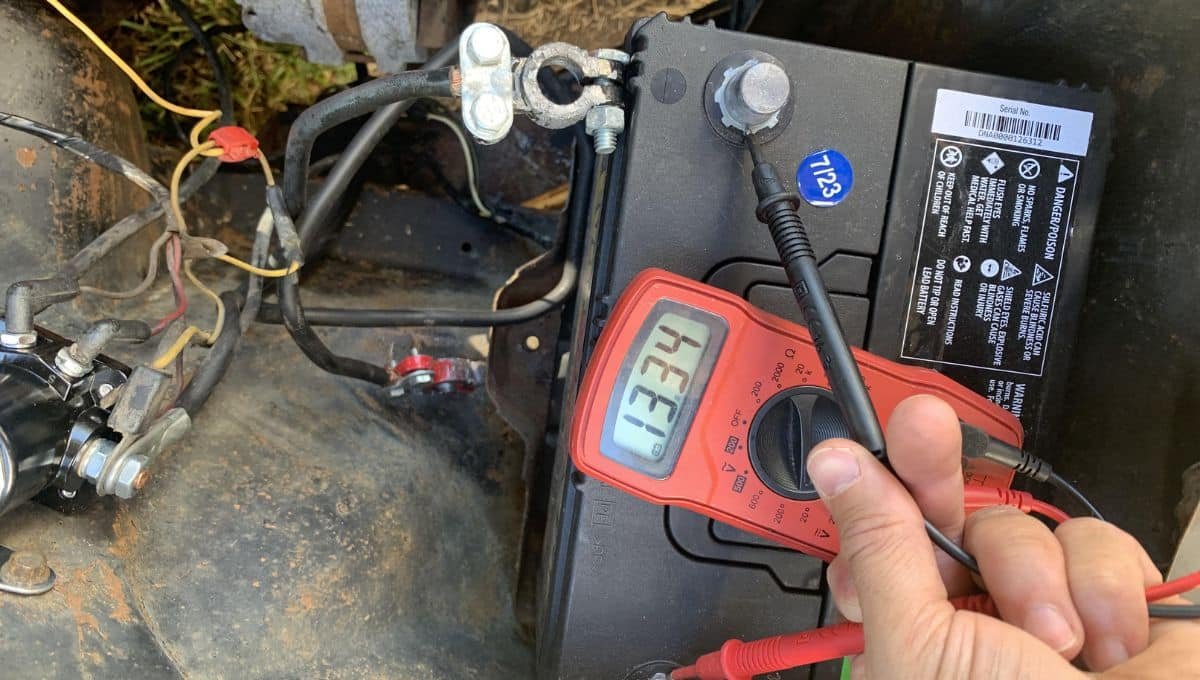











Post Comment